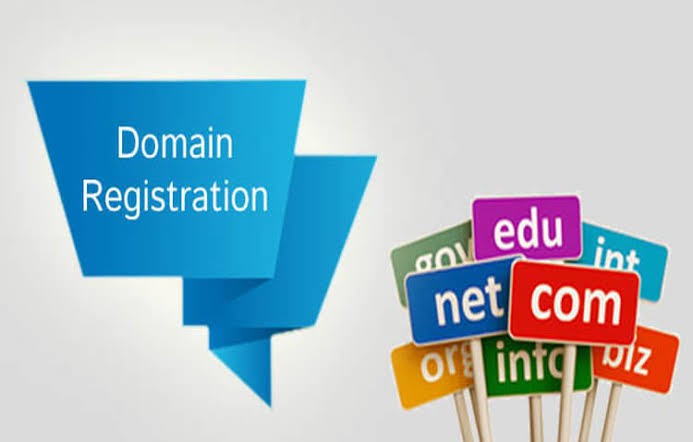INTRODUCTION:

As more businesses and individuals seek an online presence, the demand for web hosting and domain services continues to grow. In 2024, starting your own hosting and domain business offers significant potential for revenue and growth. Whether you're a tech-savvy entrepreneur or just starting out, this guide will walk you through the essential steps to launch and scale a successful hosting and domain business in the competitive digital landscape.
1. Understand the Hosting and Domain Industry:
The hosting and domain industry is vital for anyone wanting to establish a website. Hosting services allow users to store their websites, while domain names serve as the website’s address on the internet. Understanding these services and how they operate is critical to running a successful business.
- Tip: Familiarize yourself with different hosting models like shared hosting, VPS, dedicated hosting, and cloud hosting to offer services that cater to various customer needs.
2. Select the Right Hosting Platform:
Choosing the right platform is one of the most important decisions you’ll make. Two primary options for new hosting businesses are:
-
Reseller Hosting: Reseller hosting allows you to purchase hosting services from a larger provider and resell them under your own brand. This option is cost-effective and simple to manage without needing to maintain your own servers.
-
Self-Hosted Infrastructure: If you have technical knowledge and resources, you can choose to operate your own servers. This gives you full control over your business, but it’s more expensive and requires more maintenance.
-
Tip: For beginners, reseller hosting is usually the best option. You can focus on building your brand without the complexity of managing server hardware.
3. Registering Domains:
Domain registration is another essential service you’ll offer. You'll need to partner with a domain registrar such as GoDaddy, Namecheap, or Hoster.pk. As a reseller, you can purchase domains at a wholesale price and sell them to customers at a markup.

- Tip: Create a simple domain registration process on your website to make it easy for customers to search for, purchase, and manage their domain names.
4. Set Competitive Pricing:
Pricing your services effectively is key to attracting customers. You'll need to ensure your prices are competitive while allowing for profitability.
-
Consider your costs: Factor in the costs of reseller hosting packages, domain registration, and other operational costs like customer support, marketing, and payment processing.
-
Market research: Research competitors' pricing models to determine how to position your business in the market. Offering tiered packages with different features can cater to various budgets.
-
Tip: Consider offering discounts or bundled packages (hosting + domain registration) to attract first-time customers.
5. Develop a User-Friendly Website:
Your website is the storefront of your hosting and domain business, so it needs to be professional and functional. The following elements are crucial:
-
Clear hosting packages: Make it easy for visitors to see your hosting offerings, with transparent pricing and features.
-
Domain search tool: A domain search feature that allows users to check domain availability and purchase domains directly from your site.
-
Simple checkout process: Ensure that users can easily complete purchases with multiple payment methods.
-
Customer support: Include a live chat feature or an easy-to-access support page for customer inquiries.
-
Tip: Use website builders or content management systems (CMS) like WordPress or Shopify to quickly set up your website without much technical experience.
6. Marketing Your Hosting and Domain Business:
To succeed in this competitive industry, you need to attract customers. Effective marketing strategies include:

-
SEO Optimization: Optimize your website for search engines to attract organic traffic from users searching for hosting and domain services.
-
Content Marketing: Publish blog posts, tutorials, and guides about web hosting, domain registration, and website management to position yourself as an industry expert.
-
Paid Advertising: Use Google Ads and Facebook Ads to target specific customer segments looking for hosting services. Focus on targeting users with specific pain points or needs that your business can solve.
-
Social Media Marketing: Leverage platforms like Facebook, Instagram, LinkedIn, and Twitter to reach potential customers. Sharing educational content, customer testimonials, and offers can build brand awareness.
-
Tip: Run referral programs to encourage existing customers to refer new ones. Offering discounts or free services can incentivize word-of-mouth marketing.
7. Provide Outstanding Customer Support:
Customer support is essential in the hosting and domain business. Your customers will rely on you for assistance with website issues, hosting setup, and domain management.
-
Offer 24/7 support: Ensure customers can get assistance at any time. This can be done through live chat, email, or phone support.
-
Create a knowledge base: Offer self-service resources like tutorials, FAQs, and guides to help customers troubleshoot basic issues on their own.
-
Tip: Use support ticket systems to efficiently manage customer issues, and prioritize critical issues to ensure timely resolution.
8. Scale Your Hosting and Domain Business:
As your business grows, you’ll need to scale up. This may involve:
-
Upgrading hosting plans: As you add more customers, consider upgrading your hosting plan or adding more server capacity to ensure fast and reliable service.
-
Automation tools: Use automation tools to streamline billing, account management, and customer support. This helps reduce manual work and improves efficiency.
-
Expansion of offerings: Consider offering additional services like website design, SSL certificates, or managed WordPress hosting to increase your revenue streams.
-
Tip: Monitor key metrics such as customer retention rate, server uptime, and profit margins to ensure smooth scaling.
9. Focus on Data Privacy and Security:
Security is crucial in the hosting and domain industry. Customers entrust you with their website data, so you must prioritize security measures.
-
Offer SSL certificates: SSL certificates protect your customers’ websites and build trust. Include them as part of your hosting packages or offer them as add-ons.
-
Compliance with data privacy regulations: Ensure your business complies with privacy laws such as GDPR and CCPA to protect customer information.
-
Tip: Provide regular updates and patches to your hosting servers to prevent vulnerabilities, and educate your customers on the importance of security best practices.
Conclusion:
Starting a hosting and domain business in 2024 offers a profitable opportunity with minimal overhead, especially when utilizing reseller hosting. By understanding the industry, offering competitive pricing, creating a user-friendly website, marketing effectively, and prioritizing customer support, you can build a successful business. With the right strategies in place, you'll be able to scale your hosting and domain business and cater to a growing demand for online services. By staying committed to customer satisfaction and continuously improving your offerings, you can ensure long-term success in this competitive industry.


You must be logged in to post a comment.